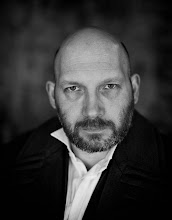
One of the most common pieces of writing advice is, ‘murder your darlings’ (or ‘kill your darlings’ depending upon which version suits you best). First ascribed to Sir Arthur Quiller-Couch and later to William Faulkner, it is a solid and dependable piece of advise which more or less means, don’t be afraid to be ruthless with either your prose or characters, or, to quote Strunk and White, ‘Omit Needless Words’ (and, by extension, needless characters, scenes or plot lines).
Of course, the definition of ‘needless’ in any given situation can vary but in a sentence like: “He roughly, savagely, violently grabbed at her”, its fairly obvious where the needless words are. But when it comes to something like:
“Zobal the archer and Cushara the pikebearer had poured many a libation to their friendship in the sanguine liquors of Yoros and the blood of the kingdom's enemies.” (The Black Abbot of Puthuum – Clark Ashton Smith)
or
“Liane merged himself with the shadow of a wall, and stood watching like a wolf, alert for any flicker of motion.” (Liane the Wayfarer – Jack Vance)
It becomes much less obvious where the needless words might be, short of rewriting both sentences to make them much less elegant. On the other hand the lean and efficient prose of a writer like Hemmingway
“In the late summer of that year we lived in a house in a village that looked across the river and the plain to the mountains.” (A Farewell to Arms)
has a rhythm all of its own. Most distinctive writers have a recognizable cadence to their prose, that way of putting one word after another to create a particular mood or atmosphere (some are more extreme than others, of course, and a writer like Clark Ashton Smith can quickly lose a modern reader with its twists and turns).
Now, taken to its most extreme conclusion, the notion of murdering one’s darlings and omitting those needless words can rob any piece of prose of its freshness, its originality and, of course, of its individual style.
So perhaps its time that we learned to nurture our darlings, to be proud of that particularly fine turn of phrase that we’ve just written, to give a little leeway to those characters of whom we have grown overly fond – after all, if Ian Fleming had chosen to murder his particular darling early on then James Bond would be nothing more than a footnote in the history of espionage fiction rather than the global brand that he is today.
I should point out that this is in no way a clarion call for self indulgence, (there are and always will be certain darlings that need to be clubbed over the head and left to rot in a shallow ditch) but rather the suggestion that its okay to trust yourself as a writer, to actually be proud of what you have written and the characters you have created.
After all, no one writes quite like you.
Of course, the definition of ‘needless’ in any given situation can vary but in a sentence like: “He roughly, savagely, violently grabbed at her”, its fairly obvious where the needless words are. But when it comes to something like:
“Zobal the archer and Cushara the pikebearer had poured many a libation to their friendship in the sanguine liquors of Yoros and the blood of the kingdom's enemies.” (The Black Abbot of Puthuum – Clark Ashton Smith)
or
“Liane merged himself with the shadow of a wall, and stood watching like a wolf, alert for any flicker of motion.” (Liane the Wayfarer – Jack Vance)
It becomes much less obvious where the needless words might be, short of rewriting both sentences to make them much less elegant. On the other hand the lean and efficient prose of a writer like Hemmingway
“In the late summer of that year we lived in a house in a village that looked across the river and the plain to the mountains.” (A Farewell to Arms)
has a rhythm all of its own. Most distinctive writers have a recognizable cadence to their prose, that way of putting one word after another to create a particular mood or atmosphere (some are more extreme than others, of course, and a writer like Clark Ashton Smith can quickly lose a modern reader with its twists and turns).
Now, taken to its most extreme conclusion, the notion of murdering one’s darlings and omitting those needless words can rob any piece of prose of its freshness, its originality and, of course, of its individual style.
So perhaps its time that we learned to nurture our darlings, to be proud of that particularly fine turn of phrase that we’ve just written, to give a little leeway to those characters of whom we have grown overly fond – after all, if Ian Fleming had chosen to murder his particular darling early on then James Bond would be nothing more than a footnote in the history of espionage fiction rather than the global brand that he is today.
I should point out that this is in no way a clarion call for self indulgence, (there are and always will be certain darlings that need to be clubbed over the head and left to rot in a shallow ditch) but rather the suggestion that its okay to trust yourself as a writer, to actually be proud of what you have written and the characters you have created.
After all, no one writes quite like you.




